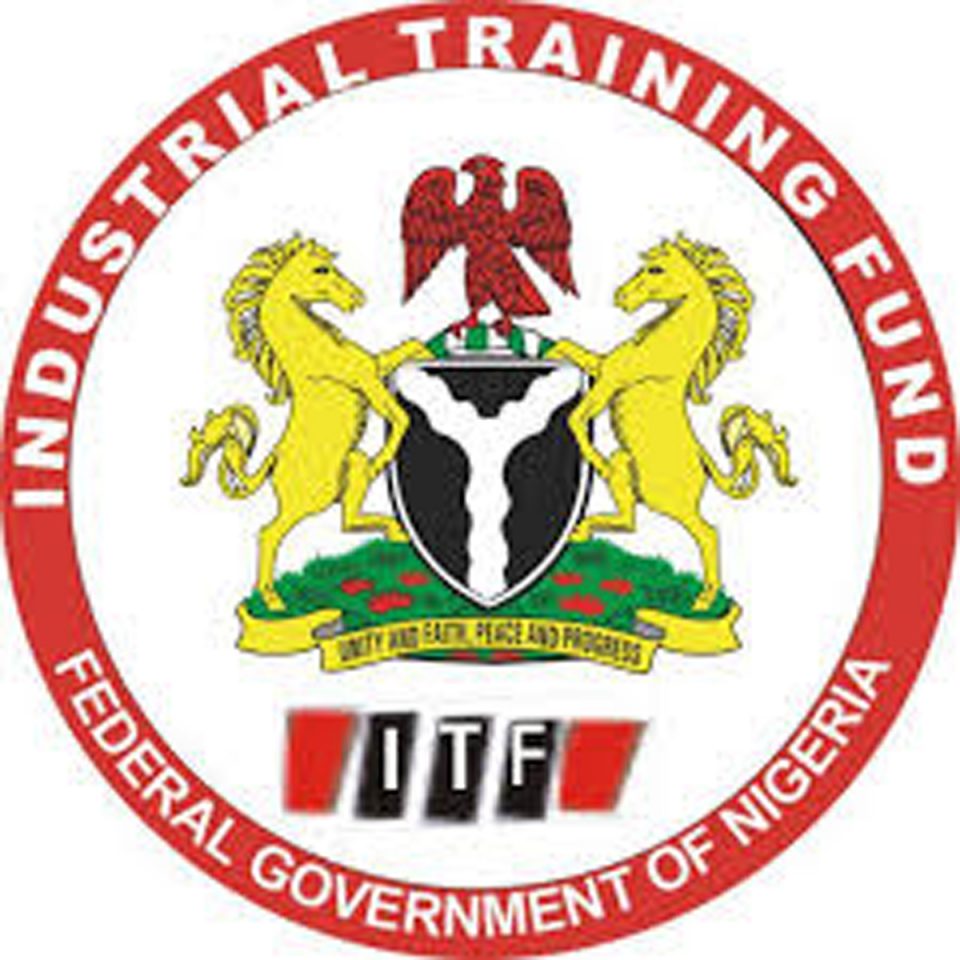The Industrial Training Fund (ITF) was established to promote the acquisition of skills in industry and commerce with a view to generating a pool of indigenous trained manpower sufficient to meet the needs of public and private sectors.
It sets and regulates training standards in all sectors of the economy and offers direct intervention in industrial and commercial skills training and development using corps of competent professional staff, modern techniques and technology.
ITF provides training skills in management; technical and entrepreneurial development, evaluates and certifies vocational skills acquired by apprentices, craftsmen and technicians in collaboration with relevant organisations.
Additionally, the ITF administers the Students Industrial Work Experience Scheme (SIWES) on behalf of the Federal Government.
The SIWES programme was established in 1973 to bridge the divide between theory and practice by exposing students of tertiary institutions to have basic technical knowledge of industrial works based on their courses of study.
SIWES, as a compulsory skills training programme, is designed prepare students of universities, polytechnics, colleges of technology, colleges of Agriculture and colleges of education for the industrial work situation they are likely to meet after graduation.
The training which is carried out before the completion of their studies with duration of three months to one year also exposes the students to work methods and techniques in handling equipment and machinery that may not be available in their institutions.
In spite of these values, ITF Director-General Joseph Ari decries inadequate budget appropriation to meet the huge number of students engaged in SIWES.
“The fact of the matter is that we have reached a point where the annual budget for SIWES alone is more than N1.5 billion and yet what comes in is paltry of about N600 million to N700 million.
“This means that there is always a huge deficit every year and that is why we need to amend the Act of ITF,’’ Ari noted.
Ari explains that the SIWES started with barely 11 universities but presently the scheme is being done in about 262 universities, including polytechnics, monotechnics and colleges of education.
According to him, the universities are regulated by the National Universities Commission (NUC), the polytechnics and monotechnics are being regulated by the National Board for Technical Education (NBTE) while the colleges of education are regulated by National Commission for Colleges of Education (NCCE).
The director-general says that these regulatory bodies have been working with the ITF for the placement of these candidates but the scheme was still underfunded.
The ITF boss further notes that in amending the ITF Act, it has also been advocating for the inclusion of creation of separate envelop for ITF SIWES, just as it has been done for National Youth Service Corps (NYSC) and others.
He advocates for government to always create a separate envelope for SIWES the way it has done for NYSC in the budgetary allocation to take care of its needs.
Commenting on the unwillingness of some employers to absorb students seeking for placements for SIWES, he enjoins employers to give necessary attention and assistance to the students for training and industrial attachment.
According to him, these challenges among others impinge on the fund’s effort in skills development.
He explains that the fund operated a reimbursement scheme to bear part of training expenses incurred by the employers in training their workforce.
He says that the reimbursement of training expenses of up to 50 per cent of employers training contributions was an incentive which the fund uses to realise its overall objective of encouraging skills acquisition and training consciousness among employers.
He, however, states that millions of graduates who have been trained through the scheme have and are still contributing invaluably to the industrial development of Nigeria.
He describes the scheme as a skill which aimed at improving the standard of education in Nigeria to achieve the needed industrial and technological advancement and prepare students for industrial work situation they would likely meet after graduation.
On its reviewed vision, he explains that ITF developed strategies for mandate actualisation in a six-year strategic plan with objectives to accelerate the impact of technical vocational skills to Nigerians.
He notes that among the objectives of the plan are plans to aggressively address service delivery challenges, tackle infrastructural deficits and expand revenue generation.
According to him, for Nigeria to fully exploit the benefits derived from skills acquisition, everybody must be committed to ensure sustainable national development in tandem with the Sustainable Development Goals (SDGS) enunciated by the United Nations.




